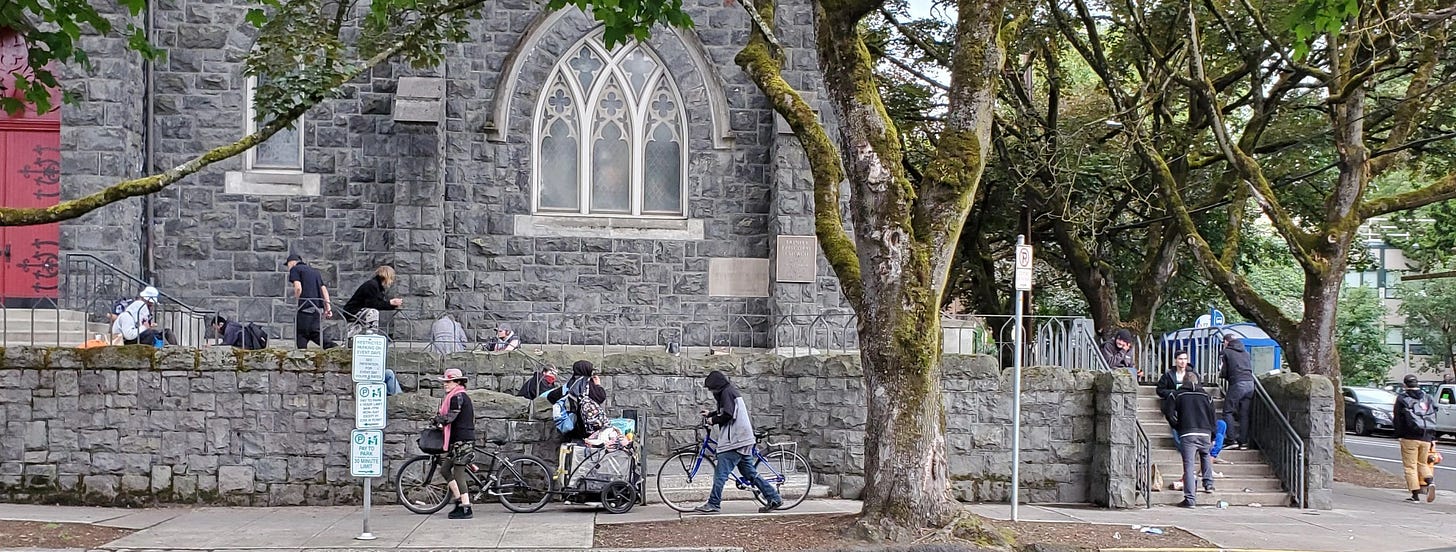Harm reduction or havoc creation?
High church, anarchists take tolerance to extremes
The southern end of Northwest 19th Avenue is paved with good intentions.
Trinity Episcopal Cathedral serves meals to 150-200 hungry souls every Wednesday and hands out food boxes daily at 19th and Everett streets. The indigent find safe rest on the church grounds, where the detritus of their lifestyle proliferates.
A scruffy congregation gathers two block…




